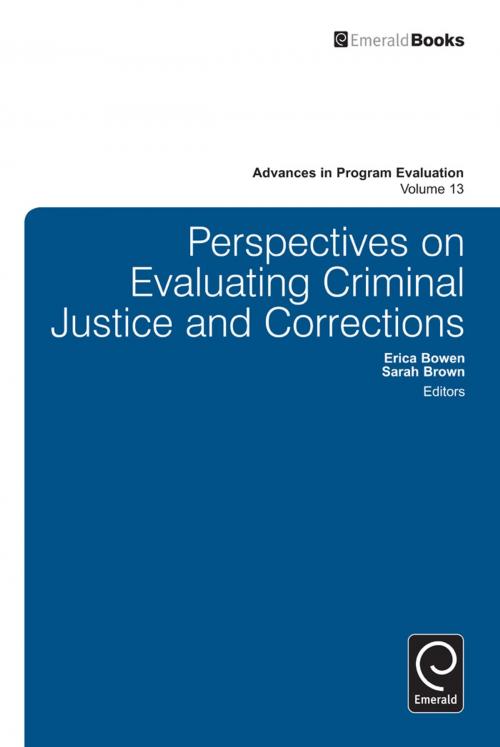Perspectives On Evaluating Criminal Justice and Corrections
Nonfiction, Social & Cultural Studies, Social Science, Crimes & Criminals, Penology| Author: | Saville Kushner | ISBN: | 9781780526454 |
| Publisher: | Emerald Group Publishing Limited | Publication: | June 20, 2012 |
| Imprint: | Emerald Group Publishing Limited | Language: | English |
| Author: | Saville Kushner |
| ISBN: | 9781780526454 |
| Publisher: | Emerald Group Publishing Limited |
| Publication: | June 20, 2012 |
| Imprint: | Emerald Group Publishing Limited |
| Language: | English |
A comprehensive and authoritative overview of issues relating to the evaluation of criminal justice/corrections 'interventions', this unique reference draws on a variety of theoretical, cultural and epistemological perspectives with authors from a range of disciplines and countries. It begins by looking at the purpose of evaluation within criminal justice systems as a historical and conceptual background. Methods outlined for evaluating criminal justice focus on educating readers about the design decisions they may face as evaluators, enabling them to make informed decisions when choosing designs that are not necessarily optimal. It raises the question of who evaluation is for, and a clearly informed discussion of the importance of the full range of stakeholders involved in evaluation and the potential impact of participating in evaluations on different stakeholders is presented. With insight into successful and unsuccessful evaluation from the perspective of those who are being evaluated, and a critical examination of the methodological and conceptual difficulties involved in identifying 'effects', this book concludes by looking ahead to the future of criminal justice evaluation.
A comprehensive and authoritative overview of issues relating to the evaluation of criminal justice/corrections 'interventions', this unique reference draws on a variety of theoretical, cultural and epistemological perspectives with authors from a range of disciplines and countries. It begins by looking at the purpose of evaluation within criminal justice systems as a historical and conceptual background. Methods outlined for evaluating criminal justice focus on educating readers about the design decisions they may face as evaluators, enabling them to make informed decisions when choosing designs that are not necessarily optimal. It raises the question of who evaluation is for, and a clearly informed discussion of the importance of the full range of stakeholders involved in evaluation and the potential impact of participating in evaluations on different stakeholders is presented. With insight into successful and unsuccessful evaluation from the perspective of those who are being evaluated, and a critical examination of the methodological and conceptual difficulties involved in identifying 'effects', this book concludes by looking ahead to the future of criminal justice evaluation.















